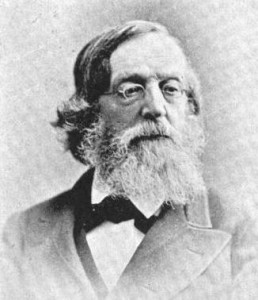I’ve been pleasantly surprised by the positive response to my recent post Christ or antichrist? However, perhaps not so surprisingly, it has not gone without criticism. The central critique goes something like this:
You criticize binary thinking, but the entire post is written within a binary framework–the Sacrificial god vs. the Self-sacrificing God.
I admit it may appear that way on the surface, and it was something I was conscious of while writing the piece. However, as I allude toward the end of my post, I don’t see the two views of God as discrete categories but rather as two poles at opposite ends of a spectrum.
The Sacrificial god is where all of humanity begins. It’s clearly an anthropological projection, the natural outgrowth of a “survival of the fittest” mentality where the threat of divine wrath serves to curb violence within the community and justify violence against those who threaten the group’s survival. A quote by Thomas Merton helps clarify what I mean:
Strong hate, the hate that takes joy in hating, is strong because it does not believe itself to be unworthy and alone. It feels the support of a justifying God, of an idol of war, an avenging and destroying spirit. From such blood-drinking gods the human race was once liberated, with great toil and terrible sorrow, by the death of a God Who delivered Himself to the Cross and suffered pathological cruelty of His own creatures out of pity for them. In conquering death He opened their eyes to the reality of a love which asks no questions about worthiness, a love which overcomes hatred and destroys death. But men have now come to reject this divine revelation of pardons and they are consequently returning to the old war gods, the gods that insatiably drink blood and eat the flesh of men. It is easier to serve the hate-gods because they thrive on the worship of collective fanaticism. To serve the hate-gods, one has only to be blinded by collective passion. To serve the God of Love one must be free, one must face the terrible responsibility of the decision to love in spite of all unworthiness whether in oneself or in one’s neighbor. — From New Seeds of Contemplation
Furthermore, no matter what theological views we claim to hold, on an unconscious level, we all vacillate between serving various approximations of the Sacrificial or Self-sacrificing God depending on the situation. When we demand a sacrifice in exchange for forgiveness, when we build group solidarity or personal identity over against an “evil other,” when we resort to a primarily transactional means of relating to our fellow human beings, we become mini-versions of the “blood-drinking gods” that Merton describes. Only when we break free from self-preservation as our prime directive do we have any hope of loosening our grip on the Sacrificial god and edging our way toward the God whose defining characteristic is co-suffering love. This is a lifelong struggle, a daily struggle, that is played out on the freeway, in the boardroom, at home, in church–virtually anyplace human beings choose to congregate.
As for those who say there’s no need to choose, that God can be both sacrificial and non-sacrificial, you’ll have to take that up with Jesus, who quotes the prophet Hosea saying, “But go and learn what this means: ‘I desire mercy, not sacrifice.’ For I have not come to call the righteous, but sinners” (Matthew 9:13). The two versions of God are completely incompatible. Jesus did not say, “But go and learn what this means: ‘I desire mercy and sacrifice.'” If God is love, and love, by definition, requires self-sacrifice (i.e. Jesus on the cross), there’s no way God can turn around and demand a sacrifice, because that would make God just like us–a self-centered hypocrite. This view of God is easily written off as a human projection. As Thomas Merton makes so clear above, the Sacrificial, blood-drinking god is anti-Christ–and so am I every time I serve him.
So this isn’t about creating a new in-group/out-group dichotomy based on which God we claim to worship. It’s about recognizing that the first inclination for all of us is to serve the Sacrificial god. What else could one expect from such death-driven, fear-driven creatures? But this is precisely the broad road to destruction from which Jesus came to save us, if only we’ll let him do it. Richard Rohr does such a great job of addressing this in his recent daily meditation that I’d like to end this post with his words:
If we just stay on the fearful or superficial side of the religious spectrum, religion is invariably defined by exclusionary purity codes that always separate things into sacred and profane. God is still distant, punitive, and scary. Then our religious job becomes putting ourselves only on the side of “sacred” things (as if you could) and to stay apart from worldly or material things, even though Jesus shows no such preference himself.
After the beginnings of mystical experience (which is just prayer experiences), one finds that what makes something secular or profane is precisely whether one lives on the surface of it. It’s not that the sacred is here and the profane is over there. Everything is profane if you live on the surface of it, and everything is sacred if you go into the depths of it—even your sin. To go inside your own mistakenness is to find God. To stay on the surface of very good things, like Bible, sacrament, priesthood, or church, is to often do very unkind and evil things, while calling them good. This important distinction is perfectly illustrated by Jesus’ parable of the publican and the Pharisee (Luke 18:9-14).
So the division for the Christian is not between secular and sacred things, but between superficial things and things at their depth. The depths always reveal grace, while staying on the surface allows one to largely miss the point (the major danger of fundamentalism, by the way). Karl Rahner, the German Jesuit, and one of my heroes of Vatican II, loved to call this “the mysticism of ordinary life.”











